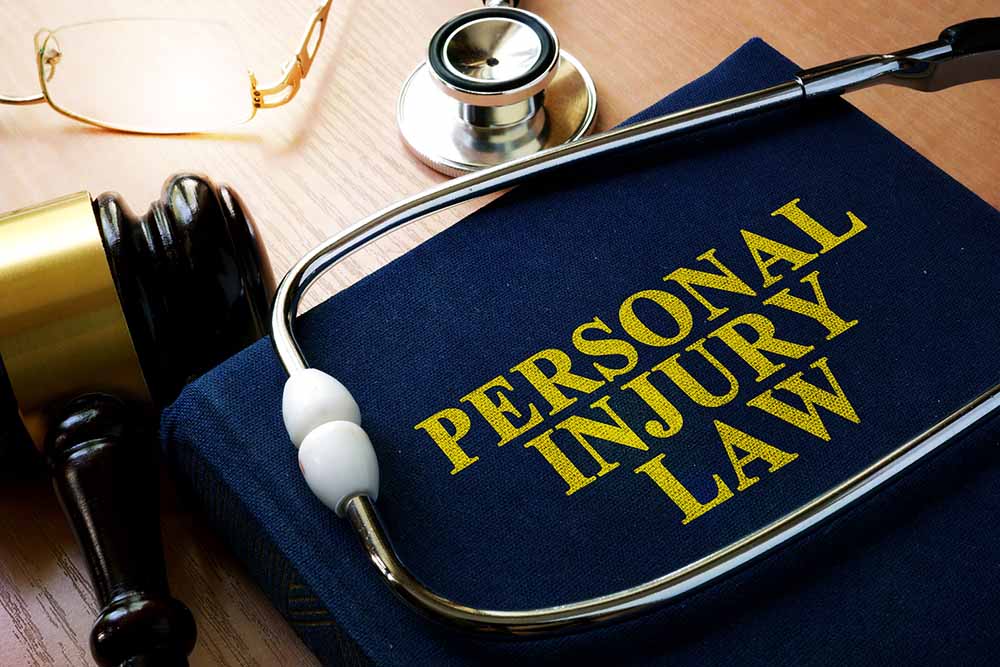Resources
Planning

Should you send a gift when someone passes away.
- September 27, 2021
- Planning
When someone passes away, it’s not uncommon for many of us to wonder if we should send gifts or other tokens of support to our grieving loved ones. You may be surprised to learn that many people find themselves confused as to whether it is even a good idea at all to send or not to send a gift, and if they could be disobeying some sort of protocol or tradition by doing so. However, even if you didn’t know the deceased, it is usually acceptable and appropriate to send a gift when someone passes away. Gifts are meaningful symbols of our love, helping to express our condolences and sympathy and let the bereaved know they are in our thoughts during this emotionally difficult time.
Continue reading to learn more about why sending a gift to a grieving loved one can be a compassionate and thoughtful gesture and learn more about funeral gift etiquettes, including the kinds of gifts you can give to grieving loved ones.
Why Send a Gift to Someone Who’s Grieving?
It’s not always easy to find the right words to help and support a loved one who is grieving. It can be quite difficult to watch those we love feel so hopeless and alone in an emotionally challenging situation. Many times, we may feel we just don’t have the right words or know what to do to help ease some of their pain or to bring some light to a melancholy situation. Sending a gift to grieving loved ones can serve as a reminder that they are not alone and that they have your love and support during this time.

What You Need to Know About Hydroxychloroquine
- September 21, 2021
- Planning
Hydroxychloroquine is in a class of drugs known as antimalarials and is prescribed to prevent and treat malaria, a red blood cell infection spread by mosquitoes. Many people take it before traveling to areas that have a high risk of malaria. Hydroxychloroquine is also commonly used to treat some autoimmune diseases.
This medication has gotten a lot more attention recently due to conflicting reports on its effectiveness in treating the COVID-19 virus. There were various studies conducted that pointed to the possibility that Hydroxychloroquine could be used as a preventative measure against COVID-19. However, most of these studies were discredited for various reasons, including a lack of control groups. Now, it seems that the use of Hydroxychloroquine in COVID-19 patients, especially those with certain underlying health conditions may cause severe, fatal complications.
With Hydroxychloroquine being at the center of controversy and all over the news recently, comes more discourse and more questions. We put together this guide to the drug to demystify any confusion as well as help answer some common questions.

13 Crucial Questions You Should Ask A Personal Injury Lawyer
- September 7, 2021
- Planning
You got injured and are now in pain and out of work. The last thing you feel like doing is finding a personal injury attorney, much less researching and interviewing dozens to find the right one. And ads promoting potential attorneys are everywhere — TV, radio, social media. So, how do you know how to find the best personal injury lawyer to meet your needs?
If you have been hurt in an accident through no fault of your own, you will need legal representation that will fight on behalf of you and your case. Knowing the right questions to ask a personal injury lawyer can help you find the right fit. We put together this guide of questions to help you determine how to find the best personal injury lawyer for you and your case.
Assess Your Prospective Personal Injury Attorney During Your Free Consultation
When you first start looking for a personal injury lawyer in your area, you will probably notice that most of them will offer a “free consultation.” A consultation with a personal injury attorney enables the attorney to assess your situation and determine if you have a strong case or not, as well as help you assess whether or not the attorney would be a good fit for you. You should also use this time with the attorney to ask the below questions to learn more about their qualifications, experience, track record, and philosophies to help you determine if they would be the right attorney for you.

How Can You Determine If You Have a Valid Medical Malpractice Claim?
- August 20, 2021
- Planning
Unfortunately, medical malpractice happens and there are countless ways across various healthcare scenarios in which it can occur. It’s important to keep in mind, however, that even if something goes wrong during a medical procedure or if a patient’s condition declines from bad to worse it doesn’t necessarily mean that the patient has a legitimate medical malpractice claim.
So, what situations do qualify as examples in which medical malpractice was clearly at play? We put together this article to address everything you need to know about medical malpractice and help you determine if you or your loved one may have a valid medical malpractice case.
What is Medical Malpractice?
According to the National Institutes of Health, medical malpractice is defined as “any act or omission by a physician during treatment of a patient that deviates from accepted norms of practice in the medical community and causes an injury or death to the patient.”

What Should You Do if Your Loved One Died from ZANTAC Cancer?
- August 16, 2021
- Planning
On April 1, 2020, The U.S. Food and Drug Administration (FDA) announced that manufacturers would need to remove all prescription and over-the-counter (OTC) ranitidine drugs from the market. Ranitidine is the generic version for the brand medication commonly known as Zantac.
Since then, drug manufacturers have been named in numerous personal injury lawsuits involving patient who were diagnosed with cancer after being treated with Zantac.
If you or a loved one suffered illness or your loved one passed away from Zantac cancer, you may be wondering what you should do to potentially win compensation on behalf of your or your loved ones suffering. One of the most common questions that comes up is, can you file a lawsuit on behalf of a loved one who passed away from taking Zantac? We have put together this guide to help answer this question and provide steps on what you should do if your loved one died from Zantac.

What Makes For a Good Funeral?
- July 30, 2021
- Planning
A funeral service isn’t something any of us would usually think of as “good”.
The death of a loved one is one of the most emotionally difficult and devastating events one can experience and we, of course, never want to face the possibility of such an incident occurring. Losing a loved one at some point however, is unfortunately a fact of life. When an event of this nature occurs, it is important that we give our loved one a proper send off, paying homage to them in a beautiful and meaningful way, rather than in a way that fails to honor them fittingly. Therefore, you can say that a “good” funeral is one that memorializes your loved one in a way that ideally suits them, turning what is otherwise a usually somber occasion into a ceremony filled with meaning that also uplifts those in attendance.
We believe when there is thought, love and care put into a funeral service, it can become an opportunity to rightfully honor a loved one that has passed away, celebrate the life and legacy they led, and cherish all loved ones and friends in attendance. We are by no means referring to a funeral service as good because of how extravagant or entertaining it was. However, we are speaking of a funeral service that is memorable, welcoming, compassionate, heartwarming, full of love and even hope, and ultimately worthy of the one being honored.

What Do You Do if A Loved One Dies Due to a Car Accident?
- July 30, 2021
- Planning
Roads worldwide are shared by cars, buses, trucks, motorcycles, mopeds, pedestrians, animals, taxis, and other travelers. Unfortunately, each year, vehicles are involved in crashes that are responsible for millions of deaths.
After a loved one passes away due to a car accident, whether he or she immediately dies or eventually passes due to fatal injuries later on, family members of the deceased can be subjected to a great deal of stress. Grieving the loss of their loved one, handling funeral and burial arrangements, as well as dealing with medical bills are just a few major concerns families can be faced with. Whether the person who passed was responsible for the accident or not, there may also be legal concerns added on to the family members’ plates.
It can be overwhelming to know what to do after an event of such nature occurs. We put together this guide to help surviving family members and loved ones better understand how to navigate the situation in which a loved one dies due to a car accident.

A Basic Guide to Understanding Probate
- July 17, 2021
- Planning
When a loved one passes away, the last thing anyone wants to deal with is a drawn-out, complex legal and financial process. However, that often is what happens when a grieving family is faced with the probate process.
Common issues that arise can be stressful and frustrating. Who takes charge of a will after a person dies? What happens if a person dies without a will? Is there any way to avoid probate altogether?
We’ve put together this guide to help you gain a better understanding of the probate process, and to make it easier to navigate the distribution of a loved one’s estate and assets after their passing.

A Guide to Suing an Employer After a Work Injury or Death
- June 26, 2021
- Planning
Every year millions of people suffer injury or illness on the job. In 2019, an estimated 2.8 million non-fatal and 5,333 fatal workplace injuries occurred.
Accidents happen. Falls, burns, breaks, and even more extensive injuries can take place on the job site. No matter what happens or how it happens, your employer’s Workers’ Compensation Insurance should be able to cover you.
However, there are other times in which you or a loved one sustained a grievous injury at a worksite in which you may wonder if you can bring an action against the employer. You may be questioning what types of situations would qualify for you to potentially sue an employer. We put together this guide to help you explore your options regarding a work injury or death.

7 Tips For Cleaning Out a Loved One’s House After Their Death
- June 22, 2021
- Planning
The passing of a loved one is already a very emotionally challenging time. Now, add on end-of-life logistics of cleaning up their house and other decisions that can get added to your plate, and it can all seem even more overwhelming.
Handling an estate cleanout can be a demanding task, but you don’t have to do it alone. We’ve laid out 7 helpful tips for cleaning out your loved one’s home after their passing to help make the process a little less stressful and more manageable.
Navigating The Cleanup Process
It’s important to know that taking on the task of cleaning out a loved one’s estate can be an emotional task. So be mindful of how you are feeling. If it feels like it’s too much to take on, ask for help from family, friends, or professionals.
